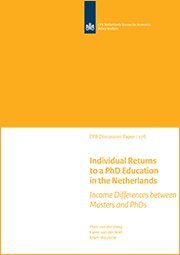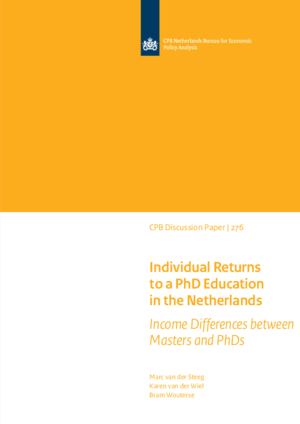Individual Returns to a PhD Education in the Netherlands: Income Differences between Masters and PhDs

The latter covariate can be seen as a measure of ability.
It turns out that over the first twenty years of experience, the average annual return (AAR) to a PhD education is not significantly different from zero. During the PhD track and the first years after PhD graduation PhDs earn less than Masters, but this initial investment is compensated by higher earnings in later years. Extrapolation of the return suggests an average annual return to a PhD education over the entire career of six percent. Similarly, the internal rate of return (IRR) – an alternative measure that takes both the timing and level of income differences into account - would equal nine percent over the entire career.
Returns to a PhD education differ strongly by sex. Female PhDs experience a positive annual return of ten percent over the first twenty years after graduation, whereas male PhDs experience a negative return of seven percent. Positive returns for women are largely driven by the fact that they tend to work more hours than female Master graduates.
